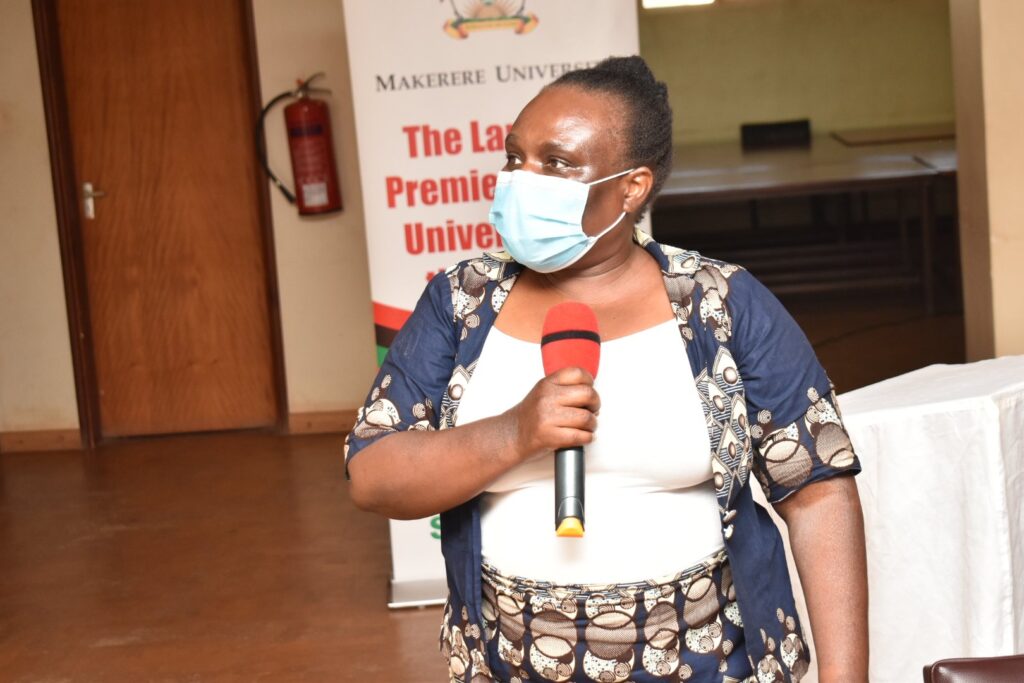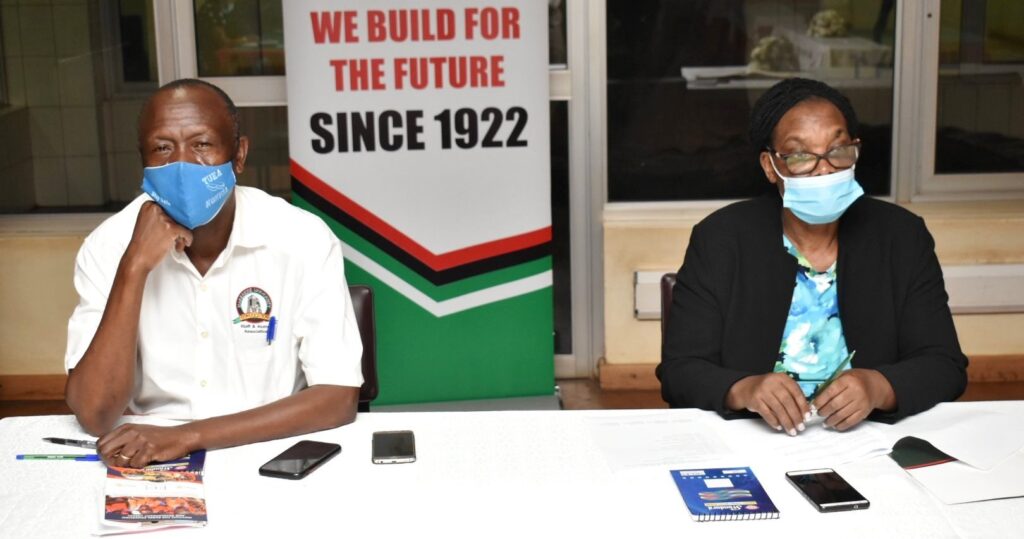Mak Digitizes over 10,000 Land Records Dating from 1830 to 1995

The University Librarian-Dr. Helen Byamugisha (3rd R) and the Buganda Land Board CEO’s Representative-Mr. Kizito Bashir (3rd L) with the Project Team; PI-Ms. Rhoda Nalubega (2nd R), Ms. Monica Naluwooza (R), Ms. Racheal Nabbosa (L) and Ms. Sara Maka (2nd L) at the dissemination event held on 28th May 2021 in the Main Library, Makerere University.
Over 10,000 records on land in Uganda under the custody of Makerere University Library have been digitized. The process supported by the Government of Uganda under Makerere University Research and Innovations Fund (Mak-RIF) aimed at preserving and promoting access to land and archival records for the period of 1830-1995 that are at high risk of deterioration.
The composition of land archives digitized include but are not limited to; land titles, Lukiiko minutes on land and correspondences, land treaties and testamentaries. Other documents included paper archives on the Uganda Protectorate, Church Missionary Society, Makerere University and instigation of clans.
According Ms. Rhodah Nalubega the Principal Investigator of the Project; Digitization of Land Archival Documents in Makerere University Library (1830-1995), the project was inspired by the information gap on the history of land in Uganda. The project team was equally motivated by the change in habits of scholarly communities who prefer to access documents in electronic format.
“The escalating demand of archival documents in Makerere University, the fragility of the documents due to age, physical handling, environment issues, brittleness and the existing contentious issues on land prompted us to think of how best to conserve and preserve the documents in their original formats without extinction” she said.

Speaking at the Dissemination workshop, on Friday 28th May, 2021, Mr. Kizito Bashir who represented the Chief Executive Officer of Buganda Land Board (BLB) Owek. Simon Kaboggoza Muwanga recognized the importance of archiving critical documents related to land ownership when he said, “I cannot tell you how important it has been for Buganda Land Board to rely on archived documents to fulfil our mandate. The political history of the kingdom and the country at large such as the 1900 agreement, Battaka movement, the 1966 Kabaka crisis and the land decree created several information gaps and the need to rely on archived documents.”
Mr. Kizito therefore said that documentation has enabled BLB to resolve land conflicts that have existed in the kingdom and the country at large. He added that BLB has greatly relied on old records dated 1900-1930 to reclaim assets that belong the kingdom of Buganda.
“We have heavily relied on the lists of land owners that were provided for in 1900, the subsequent surveys and registrations that happened in 1922-1930. Using these records, we have been able to differentiate between the original mailo land that belongs to the kingdom and private mailo land that belongs to individuals” he said.
He however, mentioned that the recording process has been evolving over time from the Final Certificates (FCs) which are evident on the micro films and the subsequent surveys, to Viral Register Volumes (MRVs) up to the current plot and block systems. He noted that the revolution is premised on land archival documents.

He congratulated Makerere University upon reaching the tremendous milestone of preserving and protecting the land archives in an electronic and digital format. He called upon the university leadership to seek institutional collaboration between the University and various key players in the sector with other archived information.
Ms. Monica Naluwooza, a Project Team Member mentioned that the digitized materials will be hosted under the Africana section of the Makerere University Institutional Repository and will be accessible to the public through rightful University procedures. Other members of the team are Ms. Racheal Nabbosa and Ms. Sara Maka.
The Makerere University Librarian Dr. Helen Byamugisha applauded the team for investing their efforts in causing visible change and adding value to their country through digitizing some of the most important and historical documents. She acknowledged the tremendous support that the University Management and Government of Uganda have consistently extended to the University Library to achieve its goals.
“The role of the library in the university is to enhance teaching and learning as well as research. It is therefore regarded as the heart of the university. Indeed, Makerere University Library is the heart of the Ivory Tower,” she noted.



